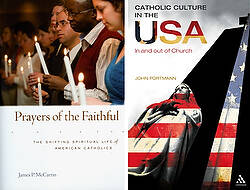Over the last few weeks, I've had a number of conversations and written a few blog posts about the intersection of faith, education and culture. They are themes that are always relevant and yet supremely elusive. As I've contemplated these issues my mind has frequently returned to a passage from H. Richard Niebuhr's Christ and Culture (1951) that helps make sense of so much of both the opportunities and challenges within these themes. More and more, in fact, I find it to be the implicit starting point for my own reflections. According to Niebuhr:
Christ claims no man purely as a natural being, but always as one who has become human in culture; who is not only in culture, but into whom culture has penetrated. Man not only speaks but thinks with the aid of the language of culture. Not only has the objective world about him been modified by human achievement; but the forms and attitudes of his mind which allow him to make sense out of the objective world have been given him by culture. He cannot dismiss the philosophy and science of his society as though they were external to him; they are in him--though in different forms from those in which they appear in the leaders of culture. . . . If Christians do not come to Christ with the language, the thought patterns, the moral disciplines of Judaism, they come with those of Rome; if not with those of Rome, then with those of Germany, England, Russia, America, India,or China.
It raises a question to which I invite reader response: what are the languages, thought patterns and moral disciplines that shape our students, and our culture, today?








